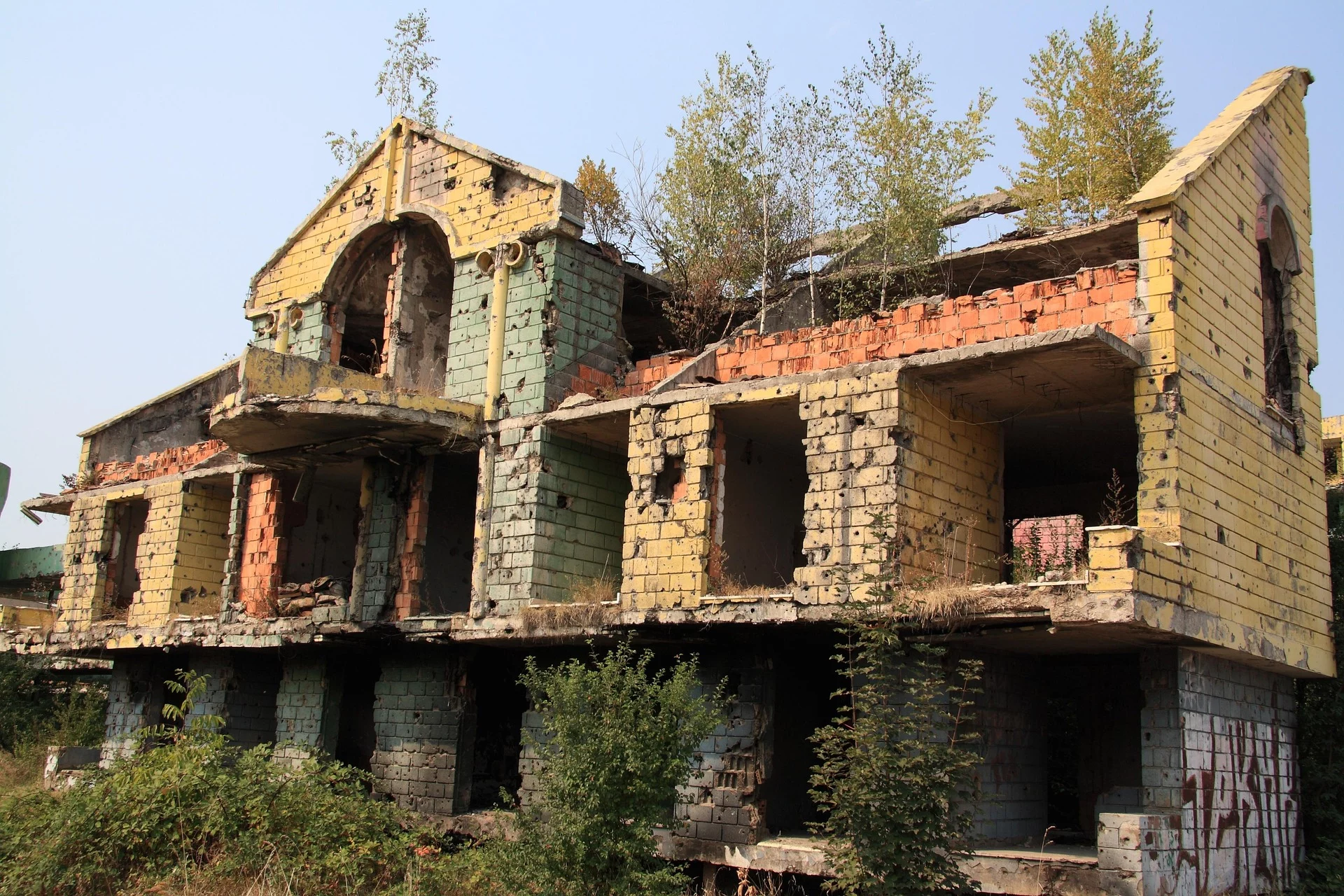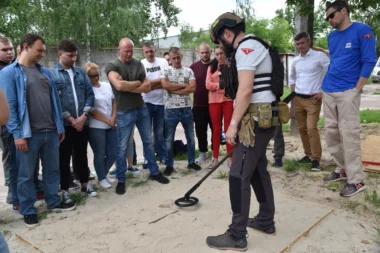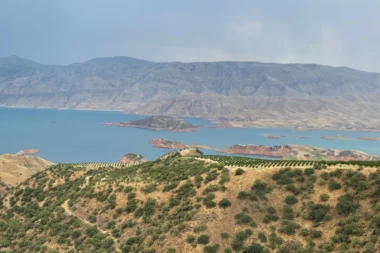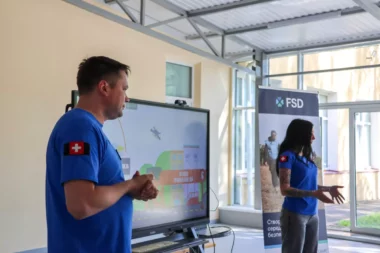Bosnia and Herzegovina

Sarajevo confronted with explosive remnants of war
The war in Bosnia and Herzegovina (1992–1995) left the capital and its surroundings heavily contaminated with landmines and explosive remnants of war. By the end of the siege, vast areas were littered with anti-personnel mines and unexploded shells. The hills surrounding Sarajevo — once front lines — were particularly affected, rendering many neighbourhoods inaccessible and exposing residents to constant danger, which slowed reconstruction efforts.
Training and employing local deminers
Bosnia and Herzegovina was the site of FSD’s first field project. The initiative began in 1997 after a call on Swiss radio to train refugees in humanitarian demining techniques. Over two years of operations, FSD deployed and supervised local teams, helping to reduce risks in densely populated areas and make the city safer. These early missions laid the foundations of FSD’s operational expertise, built on the training of local staff, technical rigour and international cooperation.
For nearly 30 years, FSD has been working to make land safer. Explore the key milestones of our humanitarian work since our first demining operation in 1998.

How to become deminer?
FSD’s deminers come from all walks of life: farmers, teachers, IT specialists and many others. Many have had their lives…
Humanitarian demining Iraq

Tourist destinations still marked by the scars of war
In the world, nearly one in three countries remains contaminated by landmines and explosive remnants of war, particularly across much of South-East…
Landmines and explosive remnants Colombia Iraq Sri Lanka

Beyond demining: preparing to hand over the reins
Faced with this reality, FSD — with the support of Switzerland — is working on two fronts: clearing land today,…
Humanitarian demining Prevention and risk education Ukraine